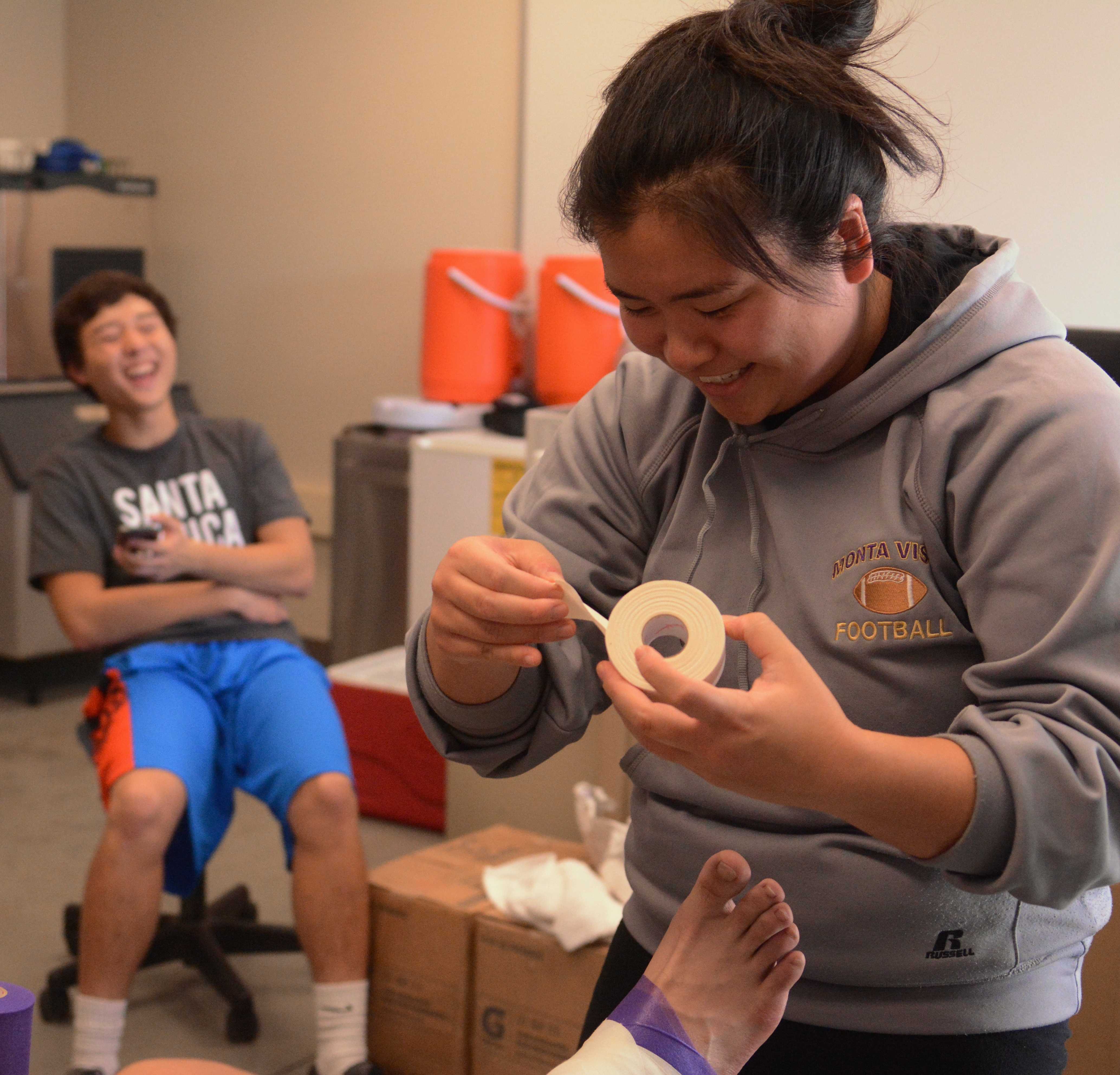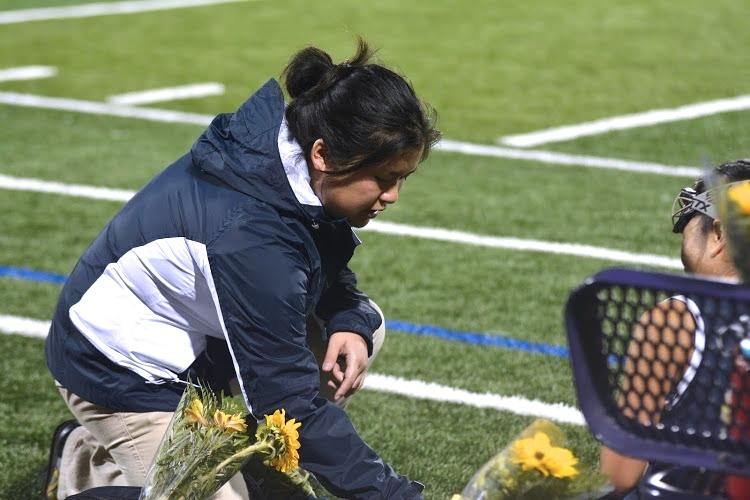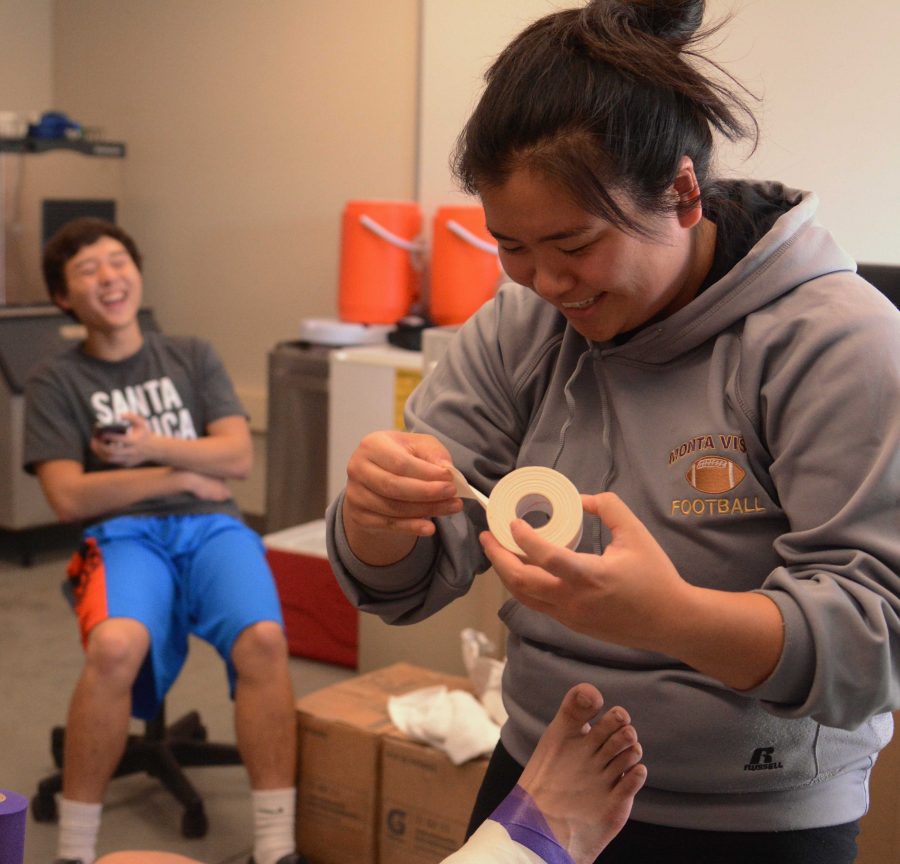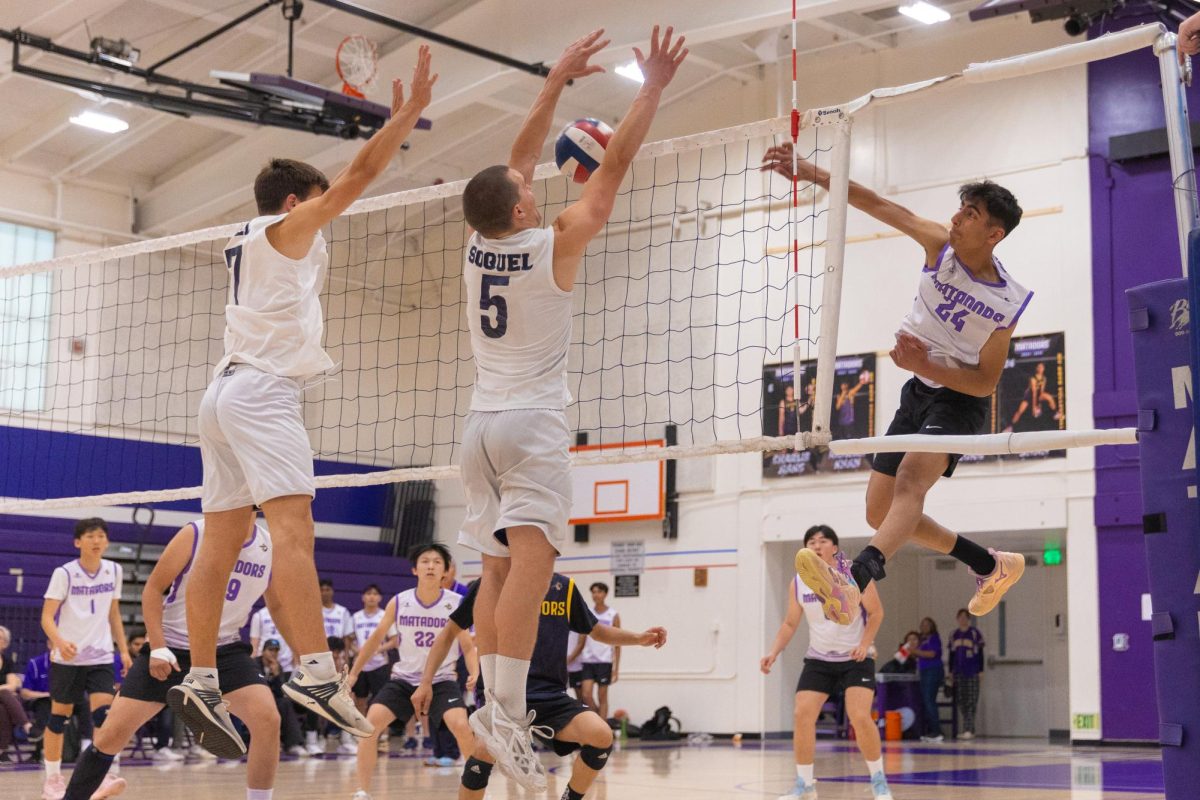
The overwhelming scent of Bengay fills the trainer’s office. Three students sit around the room talking to the trainer over the booming ice machine as she scoops ice into bags, brings the bags to her mouth and sucks the air out before tying them up.
One athlete tries to convince the trainer that his concussion is a mere headache, but she isn’t buying it. Another student quietly waits on an examination bench for rehabilitation with the trainer. He and another football player occupy two of the three benches, and first aid kits take over the other.
Every corner of the room is filled with athletic and medical paraphernalia that the trainer navigates around as she approaches the athlete who has just walked into her office. Rolls of pre-wrap, water bottles, Nivea body lotion, notebooks, sunglasses, scissors and two cans of Tuf-Skin tape adhesive lay on her desk, but trainer Marie Gishifu is calm and composed as she asks sophomore Monica Haskell a few questions.
“Whenever I’m running, I can feel a slight popping,” Haskell says, who just walked over from field hockey practice. Gishifu, who helped Haskell earlier in the week, instructs her to stretch out her hip against the doorframe. Haskell thanks her and leaves. Gishifu moves on to her next patient.
Every day, Gishifu deals with scratches, scrapes and sprains — her job is stressful. However, through years of experience, a little assistance and a lot of improvisation, Gishifu has nailed down a routine that helps athletes across all sports.
Gishifu began working at MVHS four years ago, equipped with a degree in kinesiology and an open mind.
“When I first started, it was just nerve-racking,” Gishifu said. “It was overwhelming because it was just me, by myself, taking care of everyone.”
However, after four years of experience at MVHS, Gishifu has perfected her procedure. When an athlete walks in, limps in or stumbles in, leaning on teammates, Gishifu first verifies that there are no bone fractures, which would mean calling an ambulance. She has only had to call an ambulance twice — once for possible kidney damage and once for a dislocated kneecap. Once she has ruled out a bone fracture, she examines the soft tissue to narrow down the type of injury.

Gishifu treats a wide variety of injuries, so most of her work involves thinking on her feet. Despite her experience, she can always use an extra pair of hands. This year, for the first year, she has two.
Junior Jackson McGuire always managed to get hurt, so he has been interested in the medical field from a young age. Through his family doctor, Dr. David McCall, who is also the football team’s orthopedic surgeon, he had the opportunity to work with Gishifu.
When McCall and McGuire contacted Gishifu, she was ecstatic that she had a doctor and an assistant by her side. Sophomore Meghan Rai also provides some extra help before football practice each day. She’s sure that she will continue when football is over, but she’s not sure how she began.
Gishifu’s work day begins in Los Altos, where she is a physical therapist. She arrives at her MVHS office at 2:30 p.m. along with McGuire. While Gishifu works on helping students, the two assistants provide assistance by filling up the the water jugs and dropping them off at practices and games with Gishifu’s golf cart. During practice, when the stream of injured students slows down, Gishifu works on paperwork while McGuire and Rai hold ice bag filling competitions.
“[McGuire] takes care of the smaller things, which makes a big difference,” Gishifu said.
In addition to attending football games, both home and away, Gishifu and McGuire conduct rehabilitation. McGuire helps concussed athletes recover with elliptical exercises in the weight room and Gishifu helps everyone else
On Oct. 29, Gishifu and McGuire walked out to the upper field with football players juniors Ben Hansen and Joseph Kim to begin that day’s rehabilitation. Underneath the afternoon sun, Gishifu and McGuire each watched the athletes run through their sunglasses and coolly gave them feedback.
Although treating hundreds of athletes can become chaotic, Gishifu gets the job done.
“I feel a lot safer when she’s there,” Haskell said, “knowing that if something happens she’s there to help.”
Amidst her organized chaos, Gishifu just needs the word of a frantic teammate to drop everything, hop on her golf cart and race to the field, ready to help.
Published under the headline Organized chaos.
Reported by Alina Abidi and Malini Ramaiyer.








